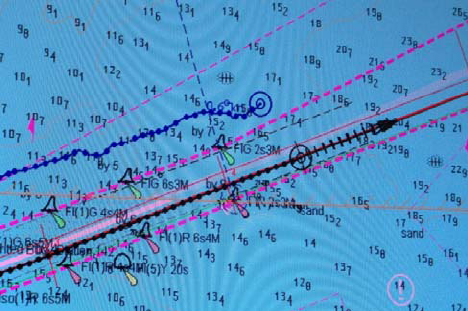
The mandatory ECDIS transitional period has ended just recently. The technology matured and the progress towards the ECDIS as a primary means of navigation has continued. Safe and effective navigation mostly relies on accurate and valid positioning despite the system’s technological advancement. In general, the frequency of plotting and monitoring of ship’s position depends on two factors: employed navigational means and navigational areas. When using paper charts for primary means of navigation, position plotting frequency usually ranges from several minutes to one hour according to the Safety Management System (SMS) or other relevant requirements. In the case of ECDIS navigation, primary position is continuously displayed, mostly by the employment of satellite positioning means, with the possibility of secondary positioning display, depending on the source. Validation by position cross-checking is therefore essential for preventing overreliance on ECDIS primary position. In different navigational stages the navigator can use well known methods from celestial, coastal or electronic navigation. In the proposed paper, accuracy and complexity of positioning methods commonly used by the navigators are evaluated. The obtained results are correlated to primary positioning validation in ECDIS and compared with maritime user requirements, recommendations and respective resolutions. The research is accompanied with survey results on position checking methods conducted among the navigators. Results revealed that most of the navigators validate primary position, however there are misinterpretations between position validation, position fixing and secondary position source. Among stated, other overall and specific findings are presented and discussed. Future research directions are proposed in terms of the necessity of position checking, availability of positioning sources and further development of the system